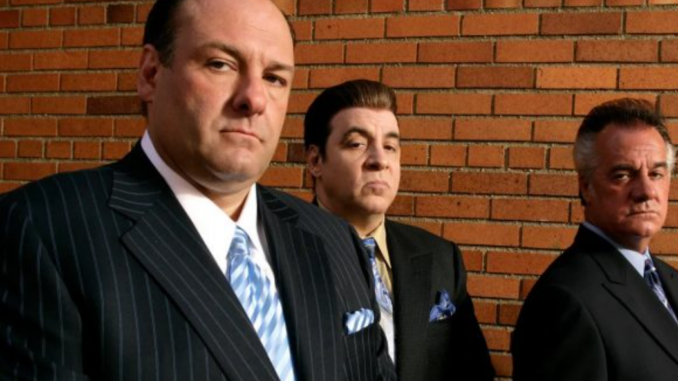
As for the unexpected inspiration for his groundbreaking crime drama, The Sopranos writer and producer David Chase shared with BBC journalist Mark Lawson in a lengthy 2006 interview.
As he told it, for a long time his wife, Denise, had believed that his mother was a source of offbeat humour and that others wanted to see it too. She wasn’t alone: her TV colleagues told her the same thing when they heard his stories about her mother, but she struggled to figure out how to adapt them to the screen. “I said, ‘Why would anyone want to see this? A TV producer with a crazy, overbearing mother?’ I never paid much attention to that. Then something struck me that it would be funny to write a story about a guy who was a lot tougher than me.” Much more masculine, more serious, more wild, with all that… and with a mother like my mother. I thought it would be interesting if the guy was a gangster who put his mother in a nursing home and that’s why she wanted to kill him. But through therapy, he realizes that his real enemy in the gang – not just in life but in his inner motivation – is his mother. This would be a great comedy.” And, that’s where one of the most critically acclaimed television series of all time came from. The Sopranos was more than just a crime show; it was a cultural phenomenon. In the complex story of the troubled life of mafia boss Tony Soprano, the show depicted a man who suffered from panic attacks as he struggled with the daily commitments of his family, the demons of his troubled childhood, and the realities of his brutal and dangerous day-to-day job, to the point where he needed treatment at the Jennifer Melfi psychiatric ward. David Chase himself went to treatment. “I think I was very nervous. “My mother worried about everyone,” he said. Although his mother, unlike Tony’s mother Livia, never went so far as to force him to sign a contract, she was prone to violent mood swings throughout his childhood and he often felt threatened by her. He recalled being stopped from going to school because of snow and upset his mother by complaining that there was no electric organ to play. “Finally, he came out of the kitchen with a knife and said, ‘I’m going to gouge his eyes out!’ And somehow, he meant it. So I was like, ‘Oh! Okay! Not that she would do that.”
in The Sopranos uses therapy as a framework to explore and allow the audience to empathize with the deeply flawed and morally damaged anti-hero played by James Gandolfini. The show shows him not only as a ruthless mafia don but also as a vulnerable husband and father caught in an existential crisis so deep that he can sometimes lose consciousness.
This nuanced portrayal extends to the entire cast. The actors play not just familiar characters, a wife, a mother or an assassin who drive the plot, but also as whole people with their own internal struggles, motivations and problems.
The focus on Tony’s subconscious and the psychology of the characters allows the show to move into non-linear storytelling using flashbacks, hallucinations and dream sequences to analyze inner turmoil, challenging the conventions of traditional television at the time.
This allowed the show to tackle broader themes of mental health, identity, family and power with a layer of realism and depth rarely seen in American dramas. The nuanced narrative meant that it was not just a crime drama, but also a reflection of American society and the complexities of the human condition. It resonated with viewers by attempting to provide them with easy answers or moral solutions, while also challenging them to confront their own judgments and prejudices.
Thanks to its cinematic production values and compelling storyline that subverted their expectations, the show became a huge commercial hit and was critically acclaimed, winning 22 Emmys and five Golden Globes.
Key to the show’s first two seasons was Livia, played by Nancy Marchand, who resembled Chase’s mother and was recognised by his entire family.
“All my relatives recognized it right away… they just watched the show and said, ‘Oh my gosh, that’s Aunt Norma,’” he said.
It was a wild portrait of a mother from Hell, at times funny and messy and evil. Guilt was a theme throughout The Sopranos, but the writer said he didn’t feel bad about portraying his mother in that light.
“I presented this comedic image of my mother. I put her on the air and she became a beloved character